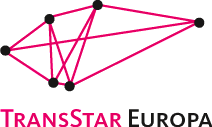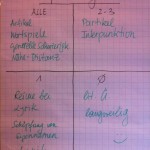The working groups Slovenian-German, Czech-German, Croatian-German and Polish-German meet in Tübingen (05 – 07 April 2013). In the course of three days the participants will work with the workshop leader within their language group but also with the other participating language groups. In the shared working phases participants will consider trans-linguistic and -cultural issues with respect to literary translation, the insights of which will in turn flow into their own translation work. One of the primary goals is to identify culturally specific approaches toward translation and learn from the different experiences.
In the working group Slovenian-German, the workshop leader Daniela Kocmut will work with workshop participants on a text by the Slovenian contemporary author Marusha Krese amongst others.
In the Croatian-German group Matthias Jacob works on concrete problems usually encountered when translating Croatian literary texts. He will primarily use five sample texts, trying to systematize them and find similarities and differences between the original language and the language the texts are translated into.
The working group Polish-German lead by Olaf Kühl deals with translation issues by discussing the types of texts selected. With texts by Tomasz Rózycki, Sylwia Chutnik and Ignacy Karpowicz, the participants have selected authors that represent an extremely broad spectrum of styles. The objective of the workshops is to outline translation issues and possible ways of resolve them and thus advance the work done thereafter.
With her working group Czech-German Kristina Kallert will work on translating a text by Jan Balabán.
Here are some photos.
Exerpt from the report by Daniela Kocmut (Slovenian-German):
In the morning (5th of April) the common group work with the other workshops took place where the general and specific phenomenon of literary translation from Southeastern European languages into German were dealt with and discussed. The workshop leaders shared their professional experiences and the participants asked concrete questions to problems encountered when translating. A stimulating discussion was created during which many of these questions were answered in collaboration.
In the afternoon (5th of April) the fist individual group workshops took place which we initiated with an “icebreaker” activity during which the participants exchanged their experiences from the sample translation they worked on while applying for the project. They were instructed to write down their experiences on a copy on the following issues:
All of us have made the experience that… articles, play on words, general difficulties, proximity vs. distance
Two to three of us have made the experience that … particles, punctuation
One person made the experience that … poetic rhymes, creation of personal names, lexis, interjections
No one made the experience that…literary translation is boring
After that we collected the answers by the participants on a flipchart:
In order to introduce analysis of translations we addressed translations of poems by Maruša Kreses from the volume of poems called Yorkshire-Tasche [Yorkshire Bag] where we discussed and compared the AT with the ZT. In this discussion we also spoke about important issues concerning poetic translation and I have pointed out a few important factors which have to be taken into consideration when translating poems. Included is also general information such as for instance that one has to conduct research on the author and on the text itself, read reviews and should also be familiar with the biography before one starts to work (or at the latest when reworking the text if one does not want to be “prejudiced”).
Excerpt from the report by Matthias Jacob (Croatian-German):
All five workshop participants translated five passages from Croatian novels in preparation for the workshop. In an intensive joint reading, the versions of translated texts were compared and problems that surfaced discussed in detail while simultaneously trying to identify the specific translatory issues of the texts. In addition to the discussion in the plenum, mutual proofreading or editing was practiced. Since course participants came from Austria, Switzerland and Germany and we thus had the opportunity to discuss three variations of German, a surprisingly productive distancing effect was created, which became apparent especially in the oral presentations of the translated texts.



